Transpiration refers to the loss of water vapour via the stomata by diffusion. Note that this is different to the transpiration stream which is the movement of water from the roots to the leaves. Transpiration is important to the plant in the following ways. It provides a means of cooling the plant via evaporative cooling.. Because cooler air holds less water, its relative humidity increases or it is 'moister air'. Therefore, warmer air will increase the driving force for transpiration and cooler air will decrease the driving force for transpiration. Soil water - The source of water for transpiration out of the plant comes from the soil.

PPT Gas Exchange in Plants PowerPoint Presentation, free download ID2375362
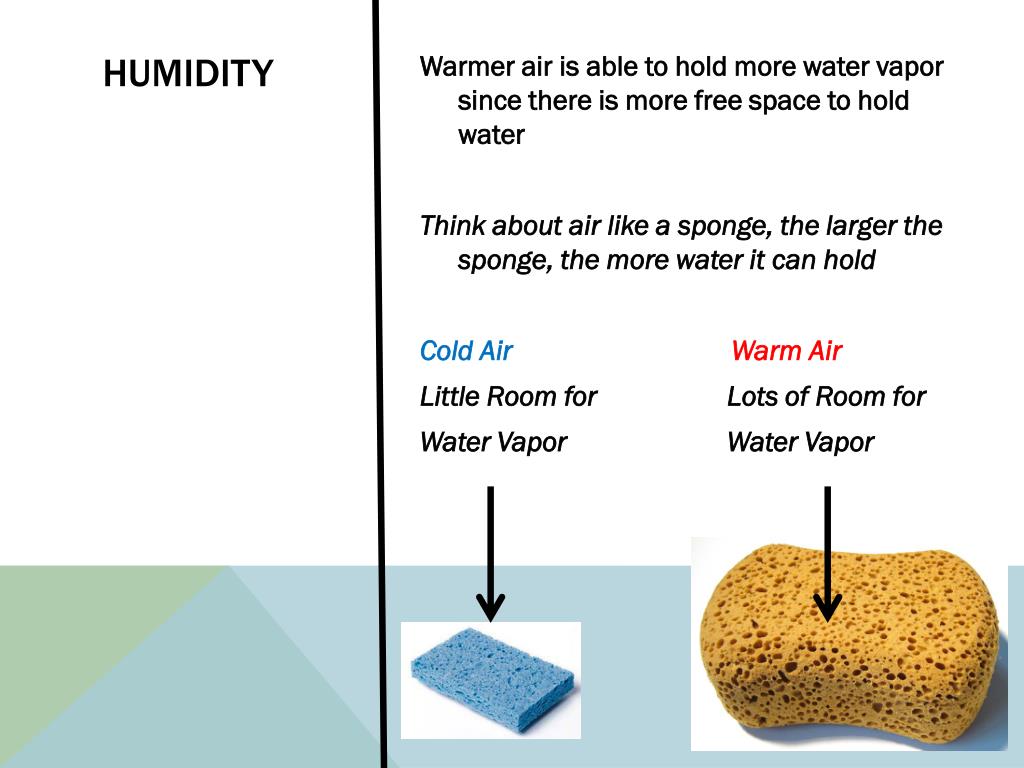
PPT Humidity PowerPoint Presentation, free download ID2762057

PPT Transpiration PowerPoint Presentation ID2180121
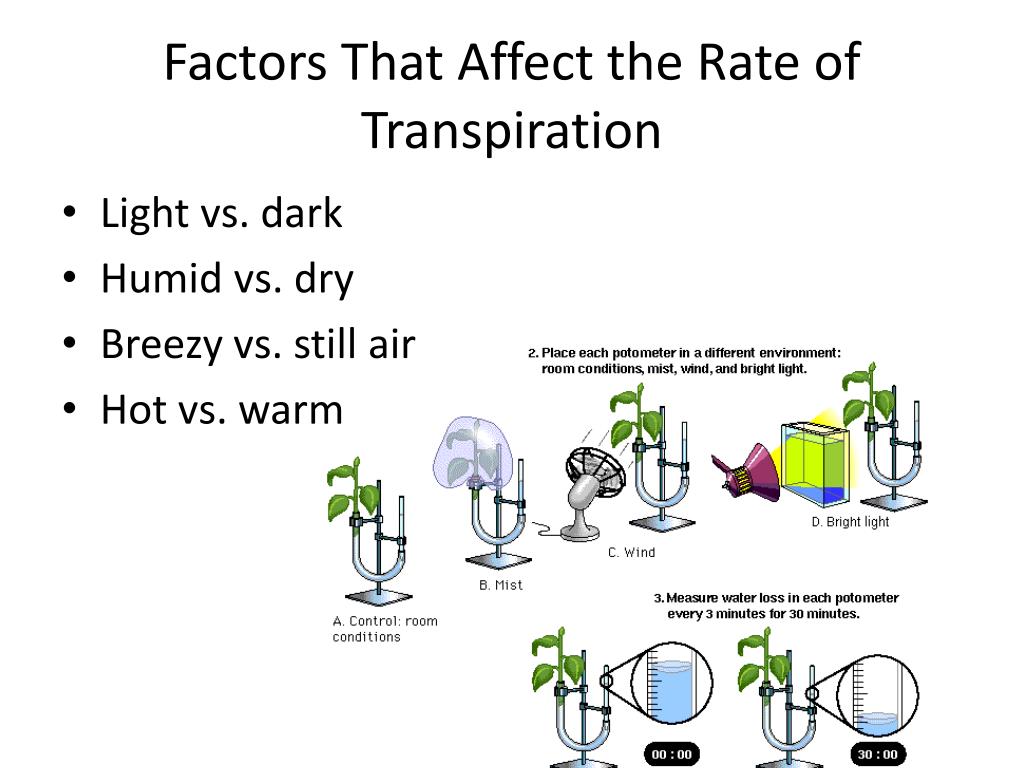
PPT Transpiration Lab PowerPoint Presentation, free download ID2164102
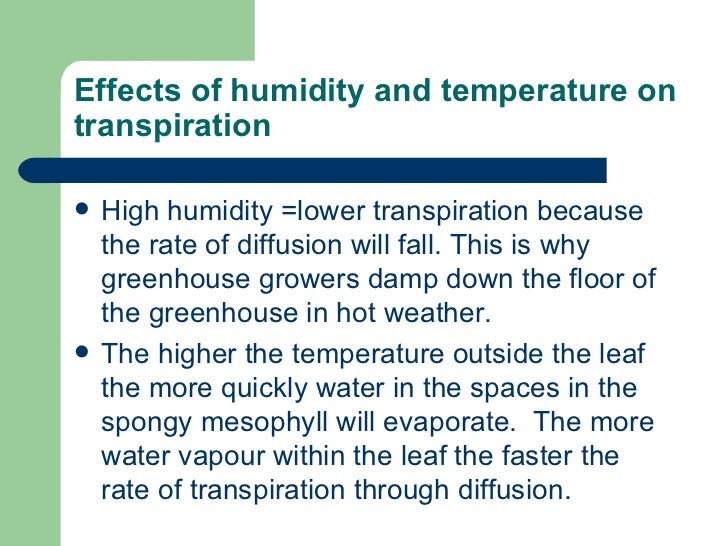
RHS Year 1 week 9 overview 2011
Transpiration In Plants

PPT Transpiration PowerPoint Presentation ID2180121

PPT Plant Science PowerPoint Presentation ID2163832

PPT Chapter 4 Humidity, Condensation and Clouds PowerPoint Presentation ID1421233
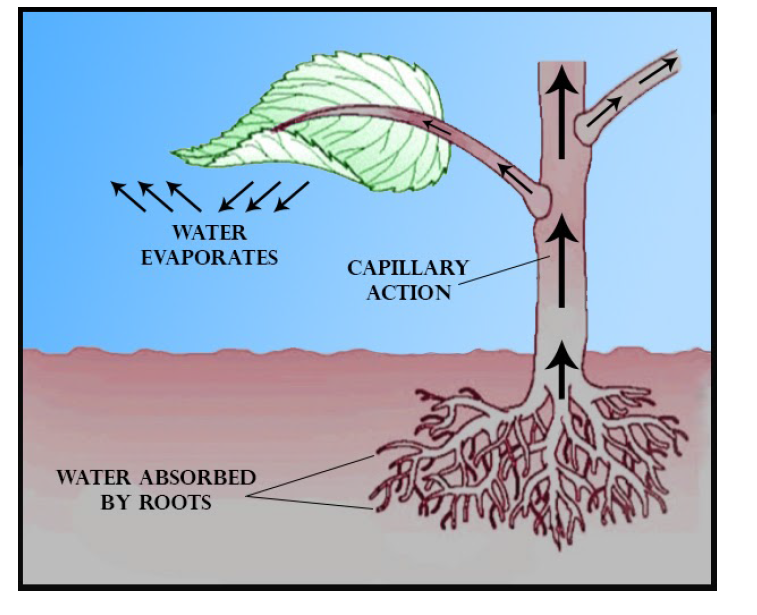
What is transpiration? Explain various factors affecting it.
Contour of relative humidity () (A) and transpiration as a mass... Download Scientific Diagram

PPT Effect of Humidity on Rate of Transpiration PowerPoint Presentation ID2164173

The effect of humidity on the transpiration rate of GCHXK leaves. Mean... Download Scientific

Low Light and High Humidity Identifying Oedema onfloriculture
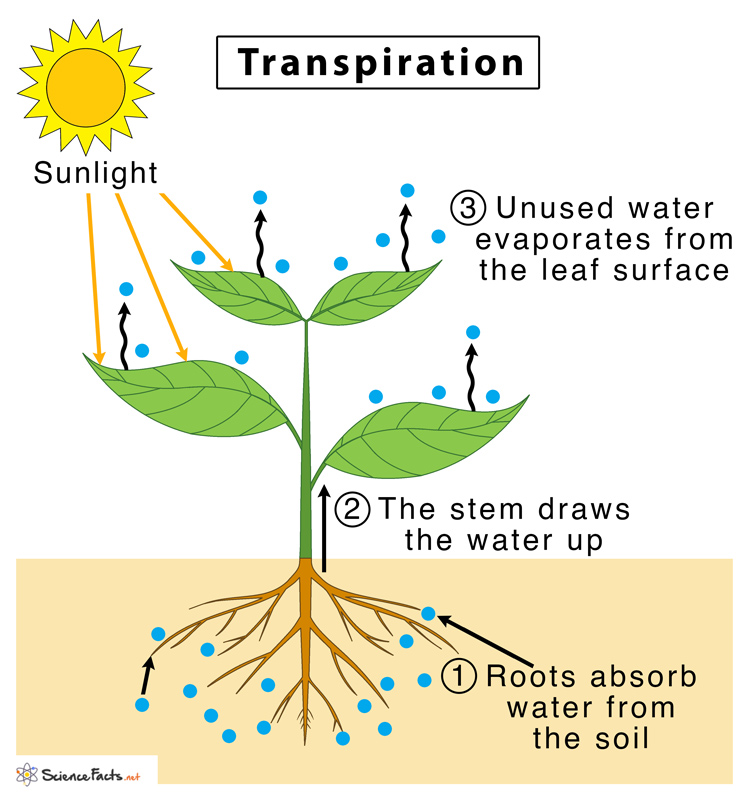
Transpiration Definition, Factors, Types, and Importance

PPT Effect of Humidity on Rate of Transpiration PowerPoint Presentation ID2164173
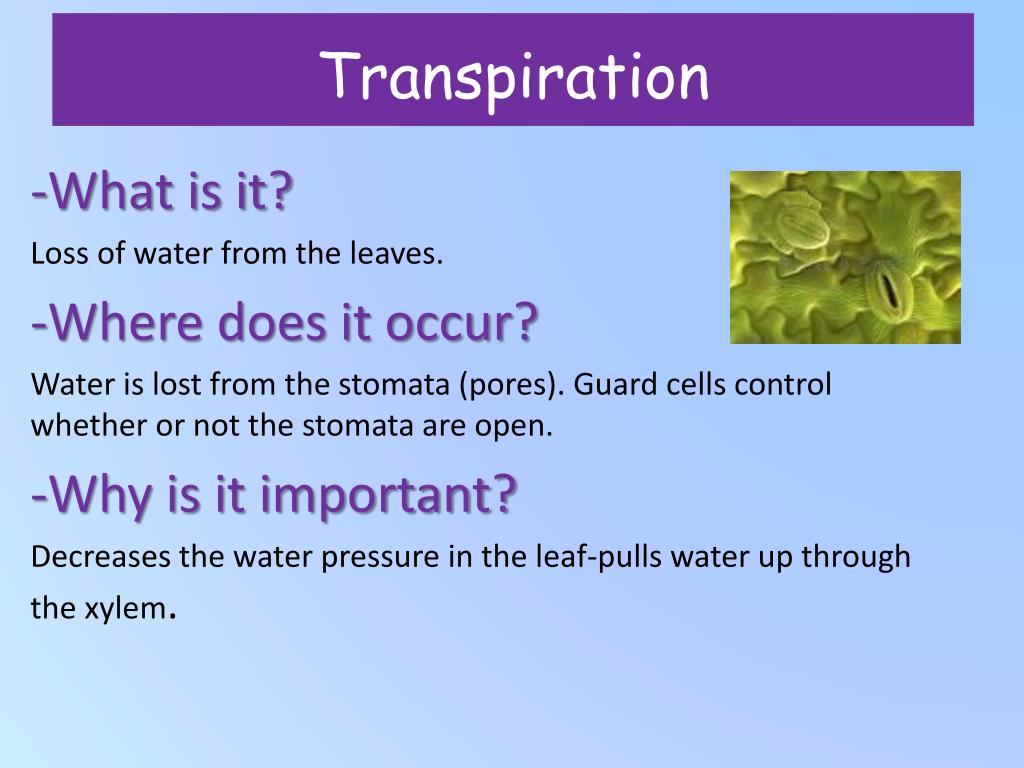
PPT Transpiration PowerPoint Presentation, free download ID2164186
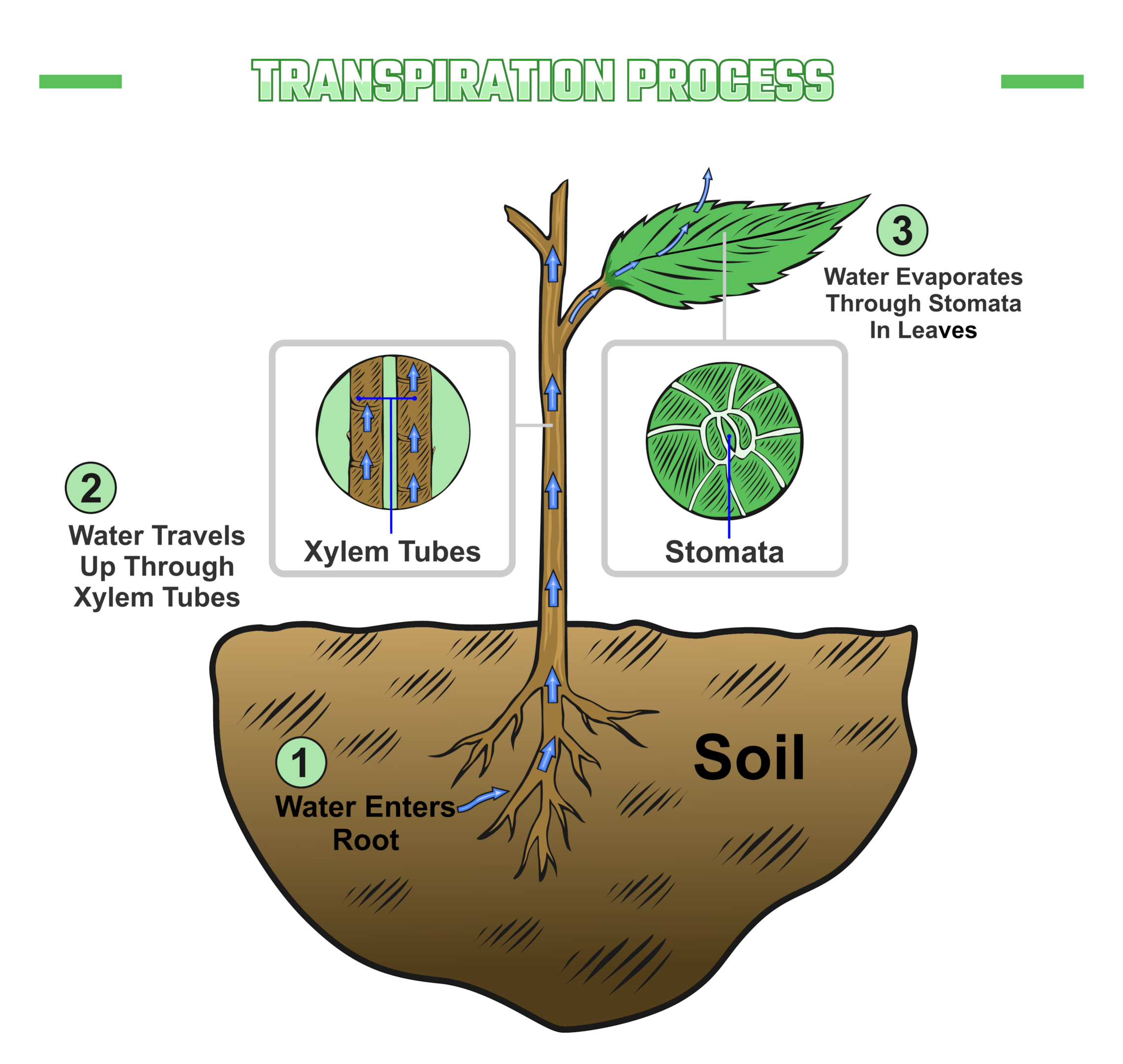
How Does Humidity Affect Plant Growth? We Researched It

How does relative humidity affect transpiration?
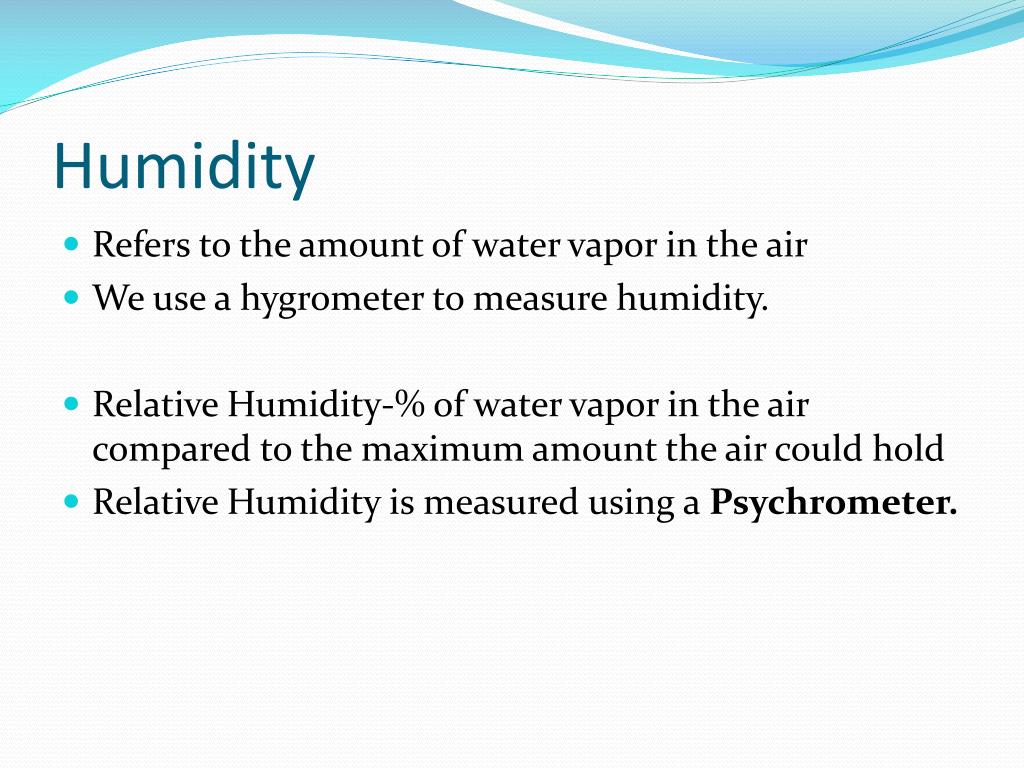
PPT Water Cycle PowerPoint Presentation, free download ID1970822
5.3 Transpiration (ESG7J) This section explains how various environmental factors can change the rate of transpiration, and also examines how the structure of the leaves has adapted to minimise this water loss. Learners will need to understand the factors that affect the transpiration rate such as temperature, light intensity, wind and humidity.. Climate change can affect transpiration by altering solar irradiance, wind patterns, surface temperatures, humidity levels, plant species compositions and the distribution of precipitation. Rising.